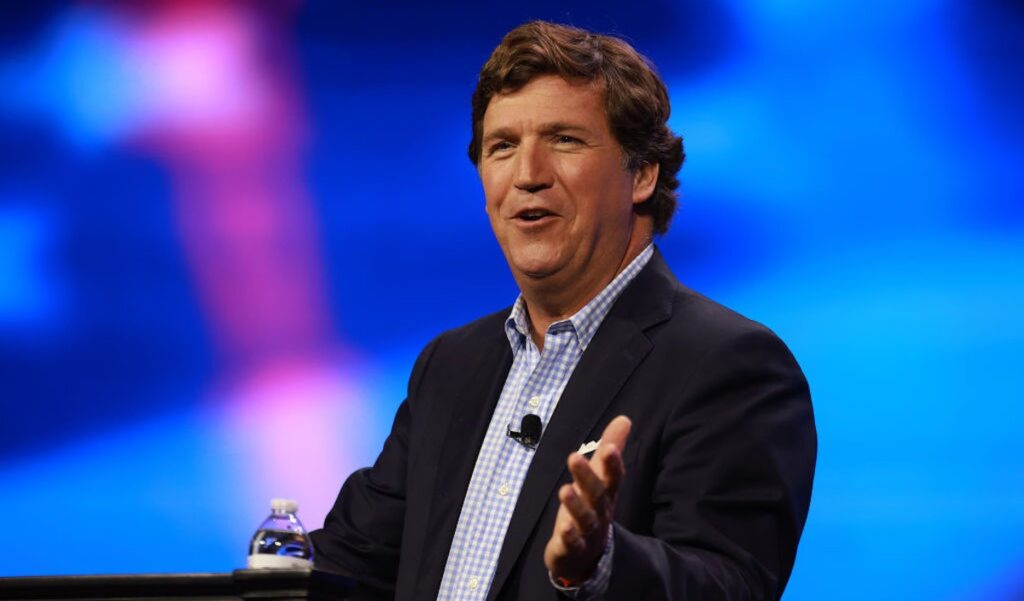As Breaking News resonates through offices and homes, the screen keys on the face of Tucker Carlson, the maverick and renowned Fox News host. Not just another headline, but an announcement that has pitched a tent on the furrowed brows of members of the European Parliament. Carlson, boldly staking out new journalistic territory, is in Moscow to interview none other than the contentious Figure of Vladimir Putin. Gripping the world’s attention, this marks the first occasion that Putin has consented to confront questions from a Western journalist since the Russian invasions into Ukraine two years prior.
Exuding the urgency and significance of the moment, European Parliament member and former Belgian Prime Minister, Guy Verhofstadt, voiced his dismay and proposed punitive action against Carlson. Viewed as a potential accomplice to Putin’s controversial strategies, Verhofstadt extended the possibility of a travel ban on the Fox News anchor, thus sparking inevitable reverberations across the international media spectrum.
Verhofstadt’s call to arms echoes into the chambers of the External Action Service (EAS), the architects of EU foreign policy, where such proposals as travel bans and sanctions are skillfully engineered. It falls upon the EAS to scrutinize any prospective addition to the EU’s sanction list. If Carlson’s case passes this prejudicial investigation, the EAS then presents the sanction proposition before the European Council, the union’s highest decision-making body, comprising of exclusive leaders of the European government.
The proposed sanction is not without supporters, as the Estonian member of the European Parliament, Urmas Paet, echoes Verhofstadt’s sentiment. Striking a blow against Carlson’s journalistic integrity, Paet accuses him of functioning as a propaganda machine for Putin’s regime, thus warranting a potential sanction.
Although, the anticipated interview between Carlson and Putin has since transpired, Kremlin spokesperson Dmitry Peskov assured listeners with the revelation that the recorded conversation indeed occurred. Peskov describes Carlson’s stance as contrastingly ‘pro-American’– a rare breed, distinct from traditional Anglo-Saxon outlets.
Undoubtedly, the presence of tangible support for Carlson’s sanction amongst EU members remains as cloudy as the political discourse that fosters it. And though a potential sanction and travel ban on Carlson would require layers of litigation and approval, the sheer proposition of such a scenario has shaken the roots of democratic values and ignited debatable questions.
Fueling counter debates, conservative media in the U.S. has rebuffed the threats levied on Carlson, defending his rights to free speech and journalism. The proposal of sanctioning him, as staged by Daily Wire co-founder Jeremy Boreing, is suggested to be a manifestation of tyranny, a stain on the democratic principles Western governments pride themselves on.
Glenn Beck, founder of The Blaze, hazards a question: ‘So, you’re not allowed to interview dictators now?!’ Highlighting the hypocrisy, he queries potential sanctions on high-profile journalists who interviewed formidable dictators in the past, reminding them that ‘journalists get BOTH sides of the story.’
As the world grapples with the consequences of this controversial interview, it’s essential to remember that journalism’s primary role is to educate and inform. While Tucker Carlson’s impending interview with Vladimir Putin may have provoked a storm of controversy, debates and potential sanctions, it also holds a mirror to the world. The outcry and uproar this announcement has fomented confirms, more than ever, the crucial role of journalism in our societies. Understanding the story from all angles is what journalism ought to offer – and any effort to stifle this is concerning indeed. Whether or not the proposed sanctions on Carlson will turn into reality remains to be seen. It’s crucial, however, for societies to remember to uphold the essential tenets of journalism – fair and balanced reporting, fearlessness, and the intrinsic human right to freedom of information.



